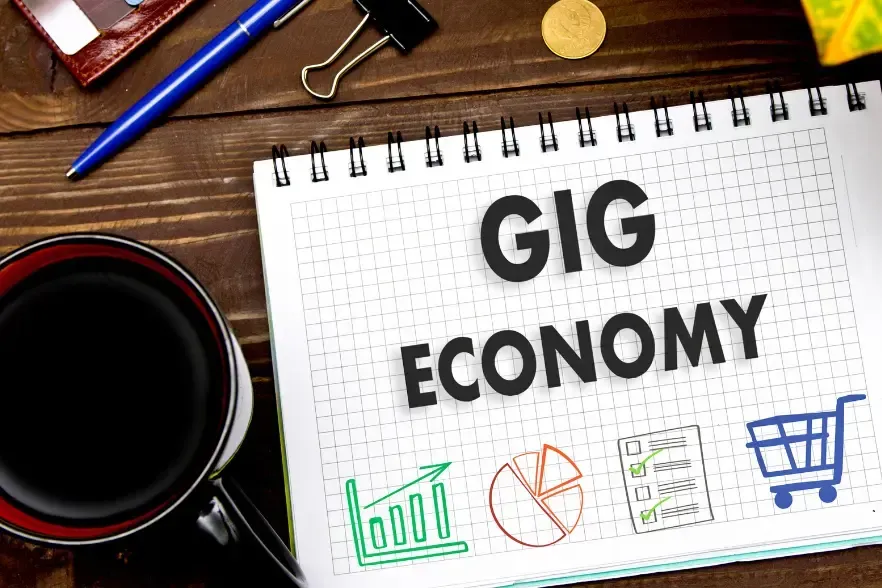Understanding Taxation in the Gig Economy

Addressing tax implications for gig economy workers and how CPAs can assist.
1. Introduction to the Gig Economy and its Taxation Challenges
The rise of the gig economy has brought about a new wave of opportunities and challenges for workers across various industries. With the increasing number of individuals joining the gig economy as freelancers and gig workers, understanding the tax implications and navigating complex financial challenges has become crucial. This comprehensive guide aims to provide valuable insights into taxation for freelancers and gig workers, and how
Certified Public Accountants (CPAs) can play a crucial role in saving the day. From tax responsibilities and deductions to maximizing tax benefits, this article will equip you with the knowledge and tools needed to successfully navigate the world of taxation in the gig economy.
2. The Significance of CPAs in Navigating Freelancer Taxation
The gig economy presents unique challenges when it comes to taxation for freelancers and gig workers. With complex tax responsibilities and the need to maximize deductions and benefits, it's crucial to have a professional by your side. Certified Public Accountants (CPAs) play a vital role in navigating the intricacies of freelancer taxation.
CPAs have extensive knowledge and expertise in tax laws and regulations that are constantly changing. They can help freelancers understand their tax obligations, file accurately, and avoid costly mistakes. Moreover, CPAs can help identify deductions and credits that freelancers may not be aware of, ultimately maximizing their tax benefits.
Hiring a CPA is an investment that can save freelancers time, money, and stress. Their guidance and support throughout the year can ensure freelancers remain compliant with tax laws and optimize their financial situation. In the gig economy, where financial stability is paramount, partnering with a CPA is a wise decision.
3. Understanding Tax Obligations as a Freelancer
As a freelancer in the gig economy, it's essential to understand your tax obligations to avoid any potential problems with the IRS. Unlike traditional employees who have taxes automatically withheld from their paychecks, freelancers are responsible for paying their own taxes.
The first step in understanding your tax obligations is to determine your employment status. Are you classified as an independent contractor or a self-employed individual? This distinction impacts how you report your income and the deductions you can claim.
Next, you need to keep track of your income and expenses throughout the year. By maintaining accurate records, you can ensure that you are reporting your income correctly and maximizing your eligible deductions.
Additionally, freelancers are required to make estimated tax payments throughout the year. These payments help to cover your tax liability and avoid penalties for underpayment. Working with a CPA can make navigating these tax obligations easier, as they can help you understand the specific requirements and ensure that you stay on top of your estimated payments.
In our next section, we will discuss in more detail how CPAs can assist freelancers in fulfilling their tax obligations and offer tips for maximizing deductions. Stay tuned!
4. Deductions and Credits: Maximizing Tax Savings for Freelancers
In the gig economy, freelancers have the opportunity to take advantage of various deductions and credits to maximize tax savings. Understanding these tax breaks can help you reduce your overall tax liability and keep more money in your pocket.
One of the key deductions available to freelancers is the home office deduction. If you have a dedicated space in your home that is used exclusively for work, you may be eligible to deduct a portion of your home expenses, such as rent or mortgage interest, utilities, and maintenance costs. This deduction can provide significant tax savings.
Another deduction available to freelancers is the business-related travel expense deduction. If you have to travel for work, expenses such as transportation, lodging, meals, and even parking fees can be deducted. However, it's crucial to keep accurate records and receipts to substantiate these expenses.
Freelancers may also be eligible for the self-employment tax deduction. This deduction allows you to reduce your overall tax liability by deducting the employer's portion of the Social Security and Medicare taxes.
In addition to deductions, there are also various tax credits available to freelancers. For example, the Earned Income Tax Credit (EITC) is a refundable credit designed to help low to moderate-income individuals and families. Freelancers who meet the income requirements may be eligible for this credit, which can provide a substantial tax refund.
Navigating the world of deductions and credits can be complex, which is why working with a CPA can be invaluable. A CPA with experience in working with freelancers understands the specific tax laws and regulations that apply to your unique situation. They can help you identify all eligible deductions and credits, ensuring that you take full advantage of the available tax savings.
In our next section, we will explore how CPAs can assist freelancers in effectively managing their expenses and maximizing their tax savings. Stay tuned for more helpful tips and insights!
5. Forming a Mutual Partnership: Working with a CPA to Optimize Tax Planning
In today's gig economy, freelancers often find themselves navigating a complex web of tax laws and regulations. To effectively manage their expenses and maximize their tax savings, many freelancers turn to Certified Public Accountants (CPAs) for assistance.
Forming a mutual partnership with a CPA can prove invaluable in optimizing tax planning. A knowledgeable CPA who specializes in working with freelancers will have a deep understanding of the nuances and challenges specific to your profession. They can guide you through the tax landscape, offering personalized advice tailored to your unique situation.
By collaborating with a CPA, freelancers can benefit from expert tax planning strategies designed to minimize their overall tax liability while ensuring compliance with all applicable laws. CPAs can assist with recordkeeping, ensuring that all deductible expenses are properly documented and substantiated. They can also provide valuable insights on how to best structure your business to maximize tax advantages.
Moreover, working with a CPA can provide peace of mind. Knowing that an experienced professional is handling your tax affairs allows you to focus on what you do best – your freelance work. With a CPA by your side, you can rest assured that you are receiving accurate, up-to-date advice and staying on top of your financial obligations.
In the following section, we will delve into the specific benefits of enlisting the help of a CPA in managing the taxation aspect of your freelancing career. Stay tuned for valuable tips and strategies to take control of your tax planning!
6. Staying Compliant and Avoiding Tax Pitfalls in the Gig Economy
Navigating the gig economy can be both exciting and challenging for freelancers. While the flexibility and independence can be rewarding, it also comes with the responsibility of understanding and complying with the tax obligations that come with self-employment.
Freelancers often face unique tax challenges, such as determining their tax classification, calculating self-employment taxes, and understanding which deductions they are eligible for. This is where a Certified Public Accountant (CPA) becomes an invaluable resource.
With their expertise in taxation and deep understanding of the gig economy, CPAs can guide freelancers through the intricacies of tax compliance. They stay on top of the ever-changing tax laws and regulations, ensuring that freelancers are aware of their obligations and taking advantage of available deductions.
By working with a CPA, freelancers can avoid common tax pitfalls that can lead to penalties or even an audit. CPAs help freelancers maintain accurate and organized records, ensuring that all income and expenses are properly documented and reported.
Furthermore, a CPA can assist in developing a tax strategy to help freelancers maximize their deductions and minimize their overall tax liability. By proactively planning throughout the year, freelancers can make informed financial decisions that align with their long-term goals.
In the next section, we will explore the best practices to adopt when working with a CPA to stay compliant and avoid tax pitfalls. Don't miss out on these valuable tips that can help you navigate the gig economy with confidence and peace of mind.
7. The Value of Professional Advice: How CPAs Can Save the Day for Freelancers
When it comes to navigating the complexities of the gig economy, the value of professional advice cannot be underestimated. Certified Public Accountants (CPAs) can be the superheroes for freelancers, helping them save time, money, and stress when it comes to tax compliance.
One of the main advantages of working with a CPA is their deep understanding of the ever-changing tax laws and regulations. They stay up to date with the latest updates and ensure that freelancers are aware of any changes that may affect their tax obligations. By having a CPA by your side, you can feel confident that you are always in compliance with the law.
CPAs can also help freelancers maximize deductions and minimize their tax liability. They have the expertise to identify all eligible deductions that you may not be aware of, ensuring you take full advantage of every opportunity to reduce your taxable income.
Moreover, CPAs can assist freelancers in creating a comprehensive tax strategy tailored to their specific needs and goals. By analyzing your financial situation and long-term objectives, a CPA can provide valuable advice on how to structure your business, set aside estimated taxes, and make smart financial decisions throughout the year.
In addition to their knowledge and expertise, CPAs can provide peace of mind. They can help freelancers maintain accurate and organized records, file their taxes on time, and avoid common pitfalls that may lead to penalties or audits. Knowing that your taxes are being handled by a professional allows you to focus on what you do best – growing your freelancing business.
In conclusion, working with a CPA is a smart investment for freelancers navigating the gig economy. Their expertise, understanding of tax regulations, and ability to develop strategic tax plans can save freelancers time, money, and stress. By partnering with a CPA, you can confidently navigate the complexities of taxation, knowing that you have a trusted professional on your side. Stay tuned for the next section, where we will uncover the top tips for finding the right CPA for your freelancing needs.
8. Conclusion: Empowering Freelancers in the Gig Economy through Effective Taxation Strategies
Being a freelancer in the gig economy can be overwhelming. However, with the help of a Certified Public Accountant (CPA), you can take control of your finances and ensure that you are always in compliance with the law. CPAs bring a wealth of knowledge and expertise to the table, helping you maximize deductions, reduce your tax liability, and create a comprehensive tax strategy tailored to your specific needs. But how do you find the right CPA for your freelancing needs? In the next section, we will explore the top tips for choosing the perfect CPA and empowering yourself in the gig economy. Stay tuned to learn how to make the best decision for your financial future.
Andrea Ward, CPA
Andrea officially began her accounting career in 1987. But it all began much earlier than that as a kid when she meticulously budgeted her allowance to buy really cool toys. Since then, she has earned Cum Laude honors with a Bachelor in Business Administration, with equivalent minors in Finance and Economics from Texas A&M University. A CPA and Registered Investment Advisor, Andrea loves helping people accumulate wealth.












